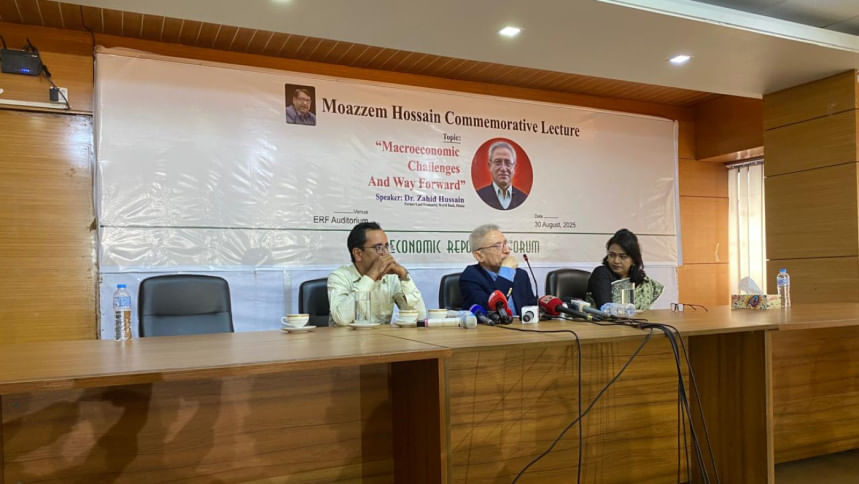Tariff leverage could bring $2b in extra orders

Bangladesh could secure an additional $2 billion in export orders, largely shifted from India and China, as it benefits from lower tariffs in the US market compared with the two largest Asian economies, said Zahid Hussain, former lead economist of the World Bank's Dhaka office, yesterday.
The Trump administration slapped as much as a 50 percent reciprocal tariff on exports from India, while China faces 30 percent on its exports to the American market. Bangladesh is in an advantageous position as the Trump administration has imposed a 20 percent tariff on its goods entering the US.
The majority of the additional orders are likely to come from India, with a smaller portion from China, as many American clothing retailers and brands are expected to shift sourcing to avoid higher tariffs.
"It is an opportunity for Bangladesh," Hussain said at the commemorative lecture on Moazzem Hossain, former editor of The Financial Express, Bangladesh's first financial daily. The Economic Reporters' Forum (ERF) organised the lecture on Hossain, who was the founding president of the ERF.
The economist, however, noted that Bangladesh will have to ensure smooth transportation of goods for shipment to grab the opportunity.
Hussain said Bangladesh's economy is in a comparatively stable situation as major indicators show positive signs: inflation is easing, foreign currency reserves at the Bangladesh Bank are growing, and remittance and export earnings are also increasing.
He said the economy is now better managed compared with the past because of the restoration of discipline. "Money laundering and embezzlement of funds from banks have been checked."
"Discipline is seen in economic management," he said, adding that the weakening of the dollar in the global market and falling prices of energy and commodities would benefit Bangladesh.
Some indicators, however, are yet to improve. "The amount of default loans is rising while investment remains sluggish."
It is also true that poverty and inequality are growing in the country, Hussain said.
He called on the cabinet, bureaucracy, citizens, and political leaders to work together for economic reforms. "A coalition of willingness is needed."
The economist also spoke on Bangladesh's planned graduation from the league of Least Developed Countries (LDCs) and businesses' demands to take steps to defer the graduation scheduled for November 2026.
If Bangladesh wants deferment, it will have to apply to the UN Committee for Development Policy (UNCDP) before March next year, as the body is scheduled to meet in March 2026 for its annual assessment, he said.
After assessing the application, the UNCDP will send it to the United Nations Economic and Social Council, and then finally to the UN General Assembly for approval.
Also speaking at the event, Mahbubur Rahman, president of the International Chamber of Commerce-Bangladesh, recalled Moazzem Hossain's contribution to economic and business journalism through the establishment of The Financial Express.
ERF President Doulot Akter Mala and General Secretary Abul Kashem also spoke on the occasion.

 For all latest news, follow The Daily Star's Google News channel.
For all latest news, follow The Daily Star's Google News channel. 



Comments